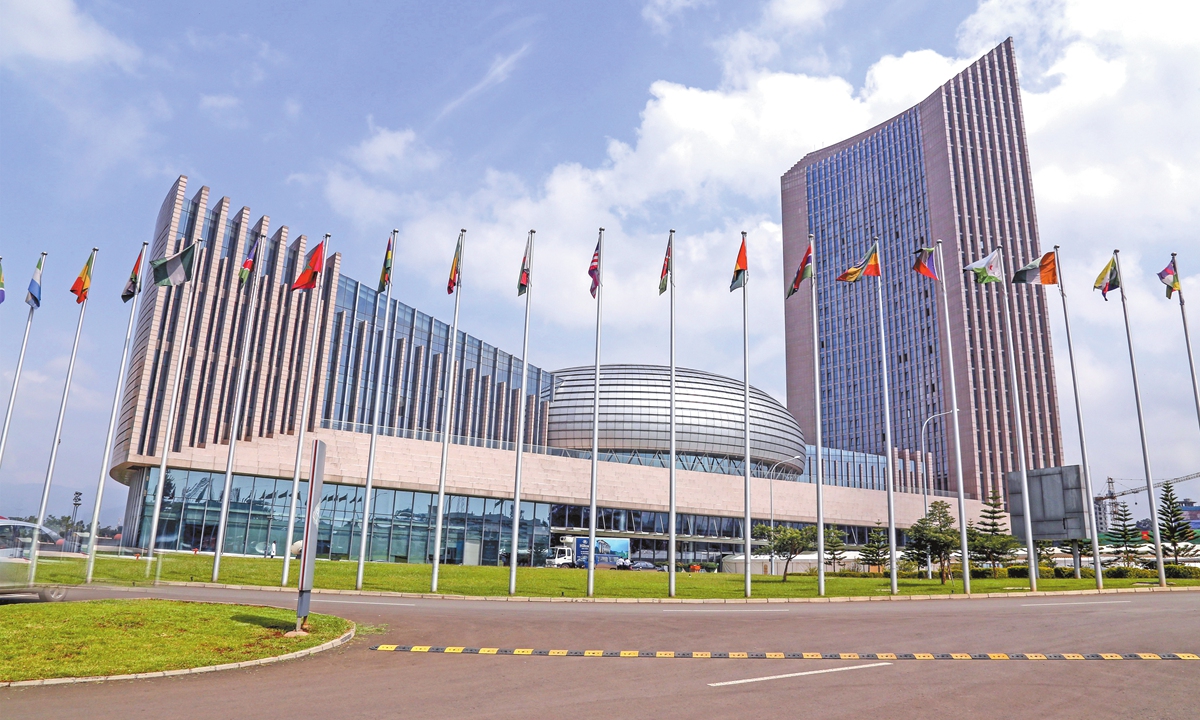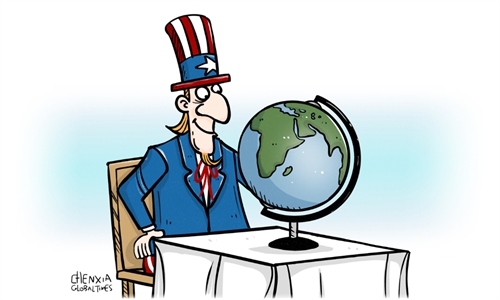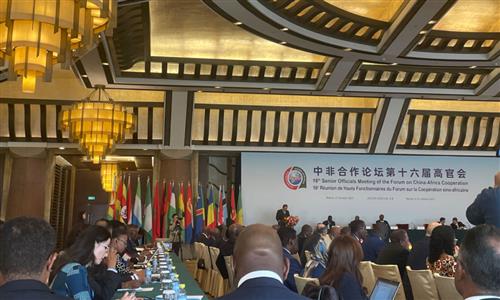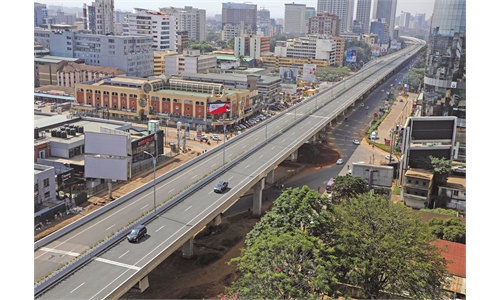New opportunities on the horizon for cross-continental BRI cooperation as summit draws near
Great expectations for China-Africa ties

A view of the China-funded African Union Conference Center and Office Complex in Addis Ababa, Ethiopia Photo: VCG
China-Africa cooperation, with economic and trade ties at its core, will become deeper under the China-proposed Belt and Road Initiative (BRI), as the two sides, based on what has already achieved over the past decade, are ready to embrace the shared vision of building a high-level China-Africa community with a shared future, experts and envoys said.
This vision is highlighted at the 2024 Summit of the Forum on China-Africa Cooperation (FOCAC), which will be held in Beijing from September 4 to 6. Leaders of FOCAC's African members will attend, and representatives of major African regional organizations and international organizations will also be present, according to the Xinhua News Agency.
Themed "Joining Hands to Advance Modernization and Build a High-Level China-Africa Community with a Shared Future," the summit will be an event to celebrate China-Africa friendship, explore cooperation and chart the course for the future, Chinese Ministry of Foreign Affairs spokesperson Lin Jian said at a regular press conference on July 30.
China-Africa ties have been built on mutual respect and mutual benefit, with a focus on how to bring sustainable development of the continental countries in the long term. Over the past decade, great achievements have been realized, with many "firsts" brought to life, under the joint construction of the BRI, Song Wei, a professor from the School of International Relations and Diplomacy at the Beijing Foreign Studies University, told the Global Times on Wednesday.
Moreover, China's support to the African countries does not come with additional conditions, in stark contrast with the US-led West, Song noted.
In light of the upcoming summit, which will be the fourth time that the FOCAC meeting is held in the form of a summit, more opportunities will be presented for both sides to deepen this cooperation for win-win outcomes, experts said.
Fruitful achievements
Over the years, the economic and trade cooperation between China and Africa has maintained vitality and achieved strong results.
According to a report released by the Chinese government in late 2023, under the guidance of the joint construction of the BRI, a number of major projects in Africa's transportation, energy and new infrastructure sectors have been implemented. As of the end of 2022, China-Africa bilateral trade accounted for more than 20 percent of Africa's total foreign trade, and China's investment stock in Africa exceeded $40 billion. This joint effort has not only boosted local economic development, but has also achieved remarkable results in reducing poverty in Africa.
For example, the Addis Ababa-Djibouti railway, a transport artery connecting Ethiopia and Djibouti and the first electrified transnational railway in East Africa, is the railway project that has cut transport time for freight goods from more than three days to less than 20 hours, and reduced the cost by at least one-third, greatly improving the access of countries along the route to the outside world, according to media reports.
Another good example is the De Aar Wind Farm, a green project that has changed the energy landscape of South Africa. As the first wind power project financed, constructed and operated by a Chinese company in Africa, it currently supplies 760 million kilowatt-hours of clean electricity annually, meeting the electricity needs of 300,000 households.
Thanks to the Belt and Road, many African countries have built their first highways, first sea bridges and first industrial parks. Africa has seen the construction of its first disease control center with complete facilities, covering the whole continent, Mao Ning, China's Ministry of Foreign Affairs spokesperson said in a press conference.
"Cooperation between Africa and China or Nigeria and China is basically on a very good platform… The BRI has opened a good gateway for business between Nigeria and China," Hassan Mohammed, a deputy trade commissioner of the Nigerian consulate in Shanghai, told the Global Times, noting that "all we need to do now is to cooperate further. But there is still a need for us to talk to each other."
China has remained Africa's largest trading partner for 15 consecutive years, with 52 African countries and the African Union Commission having signed cooperation documents on the joint construction of the BRI with China, which experts said mirrors African countries' great recognition to what the initiative brings to their economy and people.
China's support for African countries is not exclusive. Song said that "the biggest difference between China's BRI and the US and the West's approach to Africa is that our cooperation with Africa is based on equality, two-way, mutual benefit and win-win, and that our cooperation with Africa is mutual support between developing countries, which benefits both sides."
It is also a non-exclusive cooperation, meaning that we are always open for trilateral cooperation with all other countries, multinational companies and NGOs that are willing to support Africa's development, Song said.
New opportunities
The 2024 Summit of the FOCAC in September will further address Africa's development needs. It aims to shape consensus on global core issues of mutual concern, respond to interconnected challenges, particularly regarding Africa's future development, Song said.
The COVID-19 pandemic, rising geopolitical conflicts, protectionism and global economic downturn have all exacerbated developmental challenges in Africa.
"On one hand, Africa faces intensified debt repayment pressures; on the other, it requires increased financial support for modernization and industrialization," Song said, noting that the upcoming forum is expected to foster further consensus on innovative development financing to help alleviate Africa's debt burden and provide more development funds to address bottlenecks and support autonomous development through education and targeted aid.
As the world faces challenges such as increasing trends toward deglobalization among other complex global dynamics, stronger cooperation between China and Africa under the BRI is pivotal, Zhang Jianping, director of the Center for Regional Economy with the Chinese Academy of International Trade and Economic Cooperation, told the Global Times on Thursday.
Through practical enhancements in both infrastructure connectivity and soft connectivity, mutual trust between China and Africa will continue to deepen, Zhang said. "This will undoubtedly elevate economic and trade cooperation to higher levels, including Chinese investments in Africa and the establishment of industrial parks."
For example, China has been an important partner in Africa's green transition. To date, China has undertaken more than 100 clean energy projects under the FOCAC framework, supporting African countries in making better use of clean energy such as solar, hydro, wind and geothermal power, Xinhua reported.
This role can be further entrenched. Experts emphasized joint efforts in advancing modernization as a highlight of September's summit. China and African countries can collaborate closely in new-energy and digital sectors, benefiting from their complementary strengths.
African countries should also be able to capitalize on China's vast market size by expanding trade, which in return creates jobs and prosperity, Zhang added.



